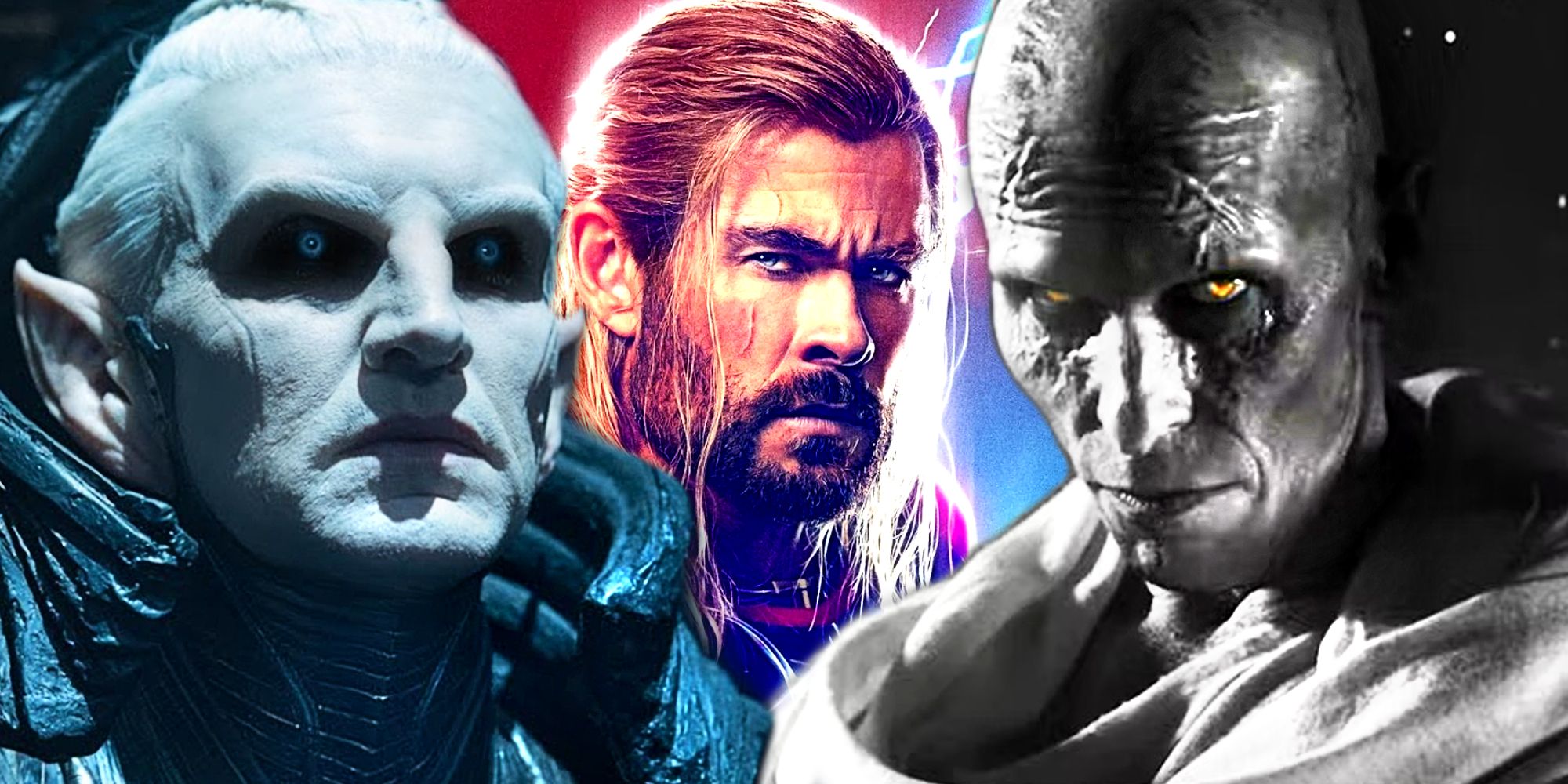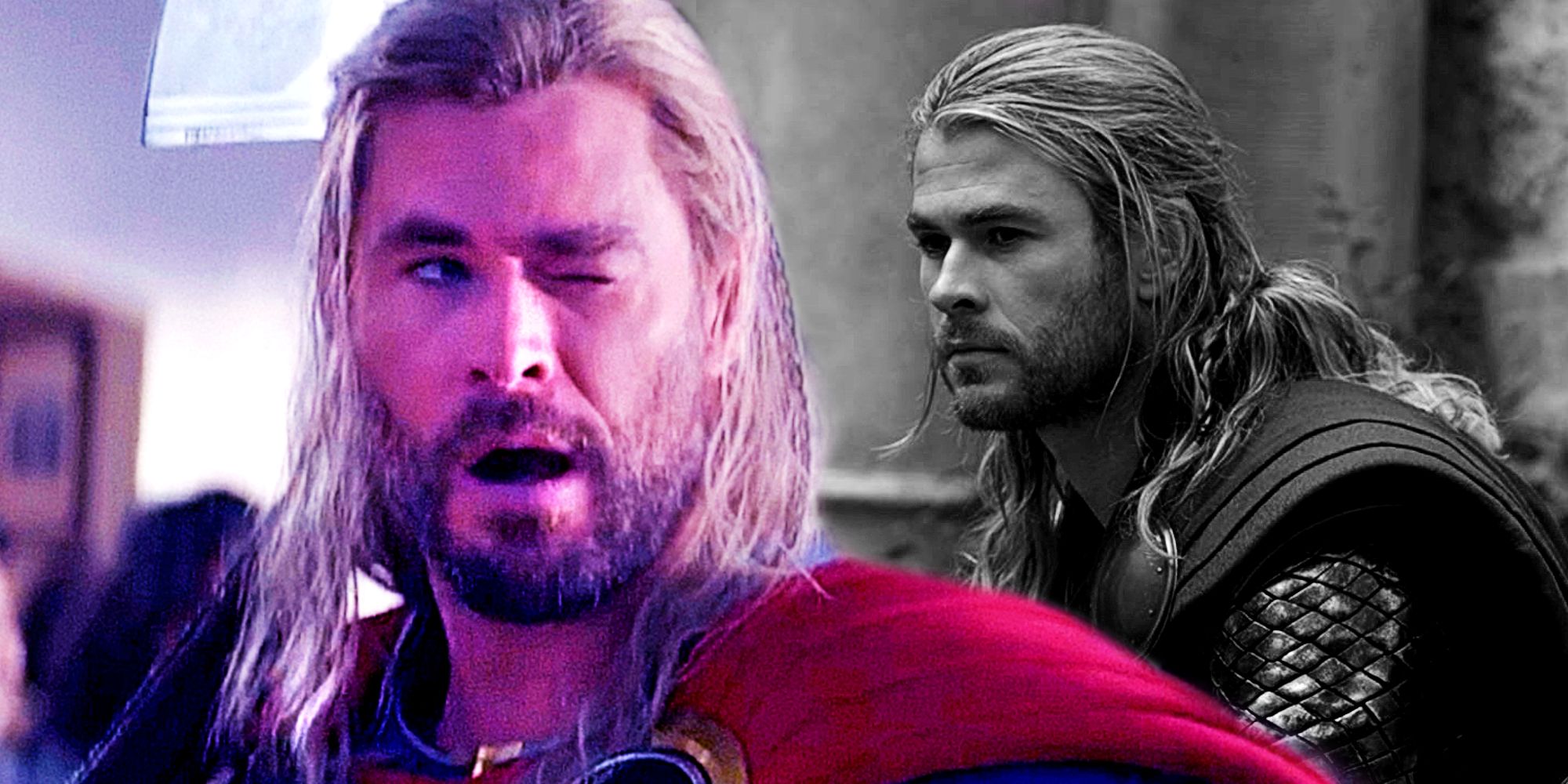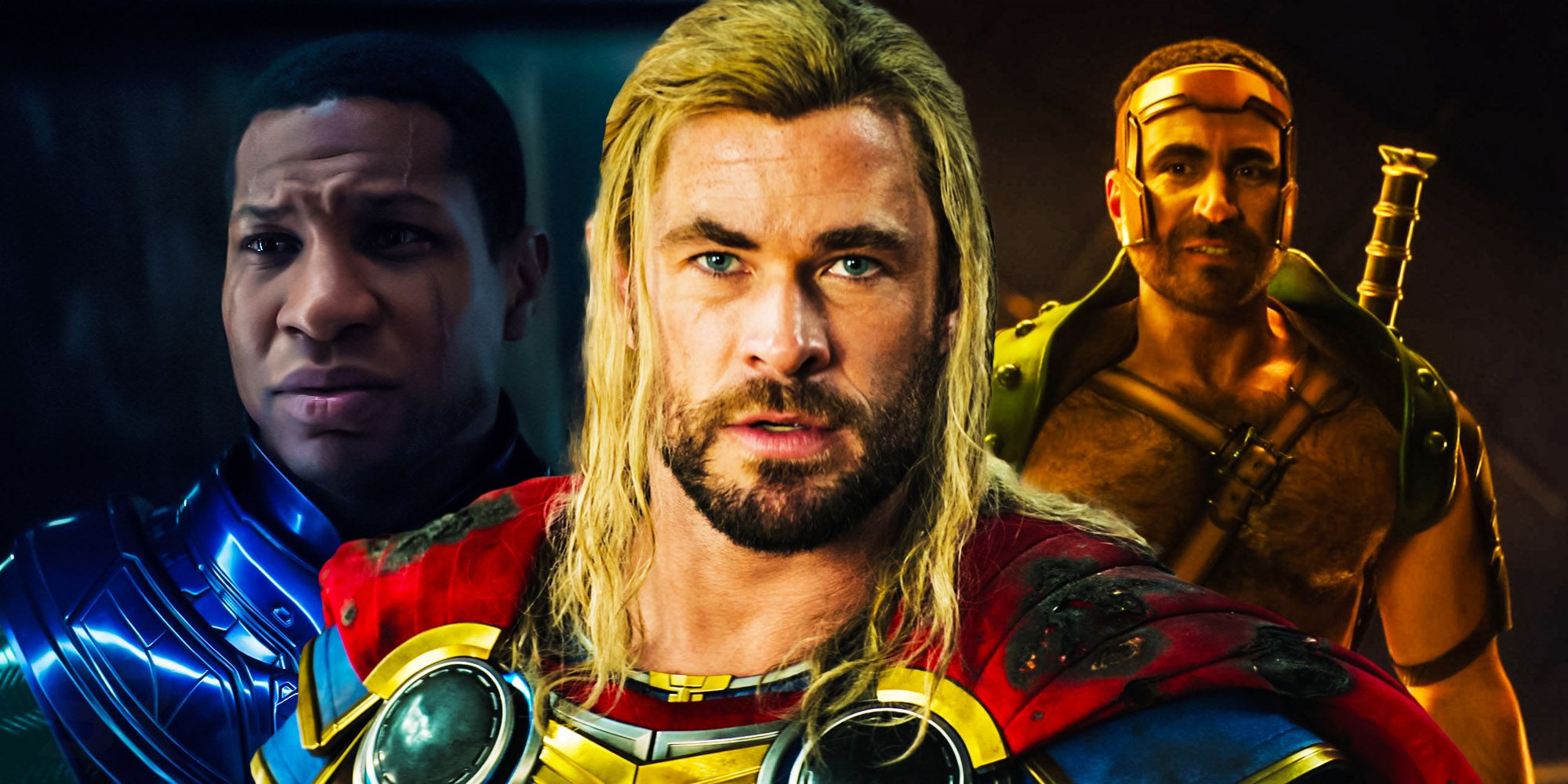Thor: The Dark World and Thor: Love and Thunder suffered from clashing tones. Swapping their main villains would have fixed part of the problem.

The MCU’s worst-received Chris Hemsworth movies, Thor: The Dark World and Thor: Love and Thunder, could have made a bigger impact had they swapped their main villains. Kenneth Branagh’s Thor established Thor, Loki, Jane Foster, and all the Asgardian mythology that continues to shape the MCU to this day. Years later, Taika Waititi’s Thor: Ragnarok gave Chris Hemsworth’s God of Thunder a breath of fresh air with a comedic take on the character. Their direct sequels, however, couldn’t replicate their predecessors’ magic.
Thor: The Dark World‘s unambitious plot and clichéd villain failed to build upon Thor, and Thor: Love and Thunder‘s zero-stakes story and exaggerated comedy hurt the character’s credibility. In Thor: The Dark World, Christopher Eccleston didn’t have much room to explore Malekith as a character, and in Thor: Love and Thunder, Christian Bale’s terrifying take on Gorr was lost amongst Taika Waititi’s extravagant directing style. Taking that into account, it would have been more appropriate for both Thor MCU movies to swap villains.
RELATED:GOTG 3 Is Flipping A Major Thor Franchise Criticism
The MCU’s Gorr And Malekith Are Total Opposites Of Their Comic Counterparts
In Marvel Comics, Gorr the God Butcher is a deeply tragic figure with genocidal goals. He adopts a nihilistic personality and acquires the Necrosword to murder every deity in the universe. Malekith is Gorr’s polar opposite, as he’s a volatile villain who simply enjoys inflicting pain on his enemies and isn’t afraid to demonstrate it. Visually, Gorr is literally a black-and-white character, while Malekith sports a particularly extravagant look with long white hair, blue and black skin, and a colorful outfit. Considering Thor: The Dark World‘s darker tone and Thor: Love and Thunder‘s lighthearted style, it would have been more fitting for them to be stars in the other’s movie.
What Thor’s Controversial Sequels Would Have Been Like With Swapped Villains
A swap between Thor: The Dark World‘s Malekith and Thor: Love and Thunder‘s Gorr the God Butcher would have helped both Thor sequels deliver a more cohesive story. Thor: The Dark World left Thor in a darker place after Loki’s supposed death and Frigga’s actual demise, so integrating Gorr’s own story of loss into this part of Thor’s journey would have added to its emotional weight. Without Jane Foster’s transformation into the Mighty Thor and Taika Waititi’s signature brand of humor to bog it down, Christian Bale’s Gorr would have also had more space to develop into a more complex character.
Thor: Love and Thunder, in turn, could have given Christopher Eccleston more freedom to take his MCU villain in more innovative directions. The actor could have had more fun with Malekith had he been given more opportunities for comedy, action, and camp than the monotonous characterization Malekith had in Thor: The Dark World. A comic-accurate Malekith would have also avoided the tonal clash that Bale’s Gorr had with the rest of Thor: Love and Thunder, and if not a key figure in Thor Odinson’s MCU journey, then Malekith could at least have been a fun villain for Thor to confront.
Thor’s Future MCU Appearances Need A Better Villain-Tone Balance
Although Thor: The Dark World and Thor: Love and Thunder are divisive MCU entries, their flaws lie in execution rather than in concept. A universal threat in Phase 2 and a light post-Endgame adventure in Phase 4 are appropriate ideas. However, the balance between the proposed tone of the movies and their main villain, which drives the plot, is key to making them work. Just like Baron Zemo was the perfect fit for Captain America: Civil War‘s grounded premise and Thanos was the perfect fit for Avengers: Infinity War and Avengers: Endgame‘s larger-than-life stories, Thor’s enemies need to fit the tone and style of each of Thor’s MCU stories.
RELATED:Endgame: Tony Stark’s Fat Thor Reaction Confirms It Was Never Just A Joke
Thor: Love and Thunder‘s first post-credits scene set up an eventual battle between Chris Hemsworth’s Thor and Brett Goldstein’s Hercules. This is a solid opportunity to strike the right villain-tone balance in a future Thor appearance. Hercules’ jovial personality is a good fit for colorful movies like Thor: Love and Thunder, but his ominous promise to bring glory back to the gods after Zeus’ near-death experience promises a darker movie like the one Thor: The Dark World tried to be. Whatever tone Thor’s next MCU appearance chooses to explore, it’s villain needs to fit appropriately.











